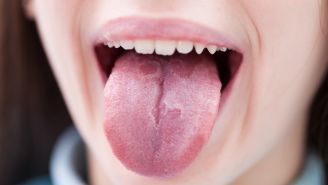Tooth decay is the number one chronic childhood illness in the United States, according to the Centers for Disease Control and Prevention. But your risk of cavities doesn't end in childhood. Adults can also develop tooth decay, particularly if you have receding gums or if you have old fillings that develop cracks and crevices where new cavities can form.
Why do cavities occur? What's the best way to prevent cavities? Why is it important to treat them? For the answers to these and other important questions about tooth decay, we asked several oral health experts from around the U.S.
What causes cavities?
"It’s pretty simple," says Jonathan B. Levine, DMD, an associate professor at the NYU School of Dentistry. "What’s unhealthy for your body is also unhealthy for your mouth."
When you eat foods that are high in sugar—as well as starchy foods that get broken down into sugar—the bacteria in your mouth can change those sugars into acids that slowly eat away at your enamel, causing a hole in your tooth. The reason children are more susceptible to cavities is because their tooth enamel is more porous than an adult's tooth enamel. While this means diet plays a role, don't forget that daily brushing and flossing is the most important way to reduce plaque and prevent cavities.
How can you prevent cavities and tooth decay?
"The foods you eat and the way you clean your teeth are the two most important factors influencing whether or not you have cavities," says Mark S. Wolff, DDS, professor and chair of the Department of Cariology and Comprehensive Care at New York University College of Dentistry.
So, the most important preventive steps you can take are to limit your intake of sugary foods and beverages, and brush at least twice a day with fluoride toothpaste. Fluoride, in toothpastes and in water, is the single most tested method for preventing cavities, says Dr. Levine. For people who are prone to cavities, dentists can administer a fluoride treatment in the office, or apply thin plastic sealants to the chewing surfaces of molars.
What are the symptoms of cavities?
In their early stages, cavities don't cause any symptoms. Which is why it's important to see a dentist regularly—ideally, every six months—so he or she can check for tiny white spots on your teeth, which are the first sign of tooth decay.
The most common symptom that does occur is tooth pain, especially when you're eating hot or cold foods. Another symptom to pay attention to is dry mouth, says Dr. Wolff. "Saliva helps prevent tooth decay because it helps to remineralize teeth, so if you develop dry mouth as a side effect of taking a medication, you're at an elevated risk of tooth decay."
Why is it important to treat cavities?
If a cavity is in the very early stages, you may be able to reverse the decay and remineralize your tooth with fluoride, but most cavities need to be filled. Having your tooth drilled and filled is probably way down on your list of favorite activities. But left untreated, cavities can lead to more serious problems, including dental infections and even tooth loss.
What's on the horizon for tooth decay and cavities?
Researchers at the UCLA School of Dentistry are working on an anti-cavity mouthwash that better targets cavity-causing bacteria and lasts a lot longer than conventional mouthwashes. In a small clinical trial, participants who rinsed their mouths just once with the new mouthwash were able to almost completely eliminate the specific cavity-causing bacteria from their mouths, and the results lasted for four days. Conventional mouthwashes only eliminate bacteria for about 12 hours.






